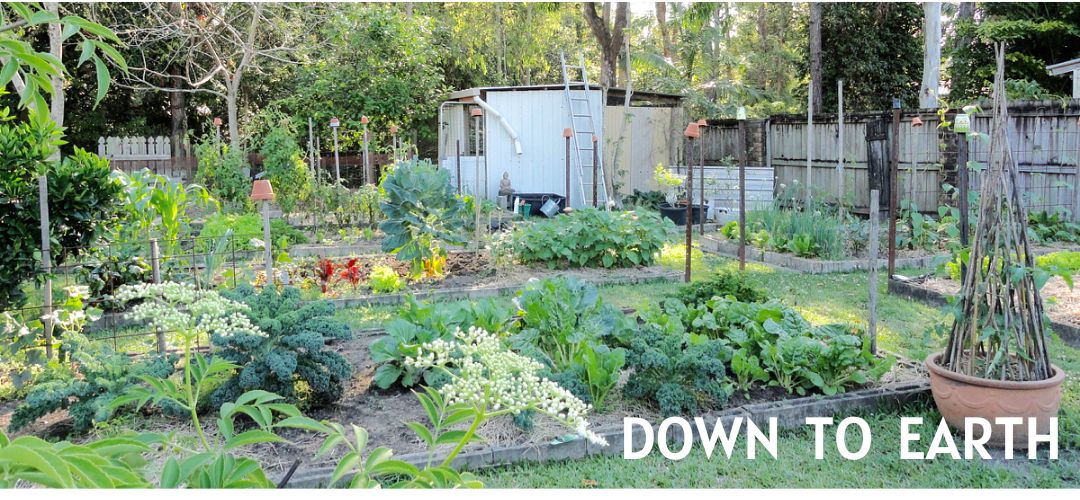Sometimes I think that I am a bit obsessed with food. But given that ‘we are what we eat’ and I am responsible for feeding myself and another seven people, and that it is our next biggest expense after housing - I guess my focus on food is valid.

We have a varied diet. The ethics of food currently has me swaying between organic vs. local produce and vegetarianism vs. growing our own meat. I have no clear answers to these questions regarding food. My ideal is local, organic and affordable. Preferably home-grown! I am fascinated by comparisons such as this one featured in Time last year. I have also read books from the library about the ethics of food, and wonder why I didn’t ask questions earlier!
My number one tip for saving money and staying healthful is to stay away from the large supermarkets. I do still go to a big supermarket for cat litter, toilet paper, bulk olive oil and so on, but for the main part of our grocery items I stay well away from those aisles of temptation and packaging!
I buy bulk nuts, dried fruit, oats, lentils and flour with a group of friends through a company in Brisbane – which is a city about 1750km away from where I live. It’s our nearest capital city! I package these items into smaller bags and containers and store them in the freezer, taking out approximately a standard packet’s worth when we need more. Keeping them in the freezer means that they’re fresh and safe for longer.
Of the few jars and tinned foods we eat, I buy these from an organic seller, often in cartons of 12. I store most of them on the bottom shelf of my linen cupboard and ‘shop’ from this stockpile when we need more, moving 2-3 tins or jars to the kitchen pantry. So those two shopping options, with the rare supermarket buy-up (of toilet paper and olive oil etc) cover most of our staples.

We are lucky to live on a farm where we can grow fruit and nuts, harvest wild foods, keep chickens and plant herbs and vegetables. Having and using these fresh foods cuts a great amount from our food budget. When we moved house about a year and a half ago I had no garden for awhile and I really noticed the difference having to buy all of our produce and eggs. Even if you can grow some sprouts, a few potted herbs, a couple of tomato plants in pots, and a foam vegetable box (or planter box if you wish) with salad greens – you’re making a difference. And if you’re doing this with children, you’re teaching them something very special. As a child I had many gardens, including one on a window ledge in an inner-city apartment. My mother encouraged me to grow plants wherever we were, and to this day it is an important part of my lifestyle. In turn, I encourage my own children to care for the chickens, plant seeds, help me to harvest from the vegetable patch and forest. Last week they took a basket to the edge of the forest, just metres from our house, and harvested enough yellow guavas for me to make 6 litres of guava jelly. Most went to the pantry and some was given to a friend who brought us some of his excess bananas. Next time he visits I’ll have a banana cake to show my appreciation.

Living in the country does offer more blessings in the way of space to grow food, roadside stalls, country markets, wild foods and free food from friends’ and neighbours’ gardens. In urban areas, families can try the ideas above if they have some balcony space or a courtyard. Or perhaps look into community gardens, food co-ops (where you buy food in bulk and share it out) and farmers’ markets. In cities there are also warehouses for bulk buying, larger supermarket chains with very cheap products and international grocery stores. In case you’re wishing for what you don’t have, please take advantage of what you do have and work with it. I have lived in urban, suburban, semi-rural and now a farming area. I’ve had many homes and many gardens and I know that there are pros and cons to every situation. For me, having the land is great because I love the work and don’t miss the benefits of city living too much. For others, the land could be a burden and the city full of blessings. Whatever you have and whatever you do, involve your children in obtaining food. Let them help you shop wisely, without the I-wants. Encourage them to grow food. Teach them about your local wild foods. Preserve the bounty and see their wide-eyed joy. The advertisers want our children to be thrilled by character-packaged nothing-foods. I want our children to be thrilled by the taste of a cherry tomato plucked from the vine, the crunch of a snow pea, shiny bottles of jam and the thrill of discovering that the fruit is ripening on the trees.

Once I’m done shopping (which, when you avoid the supermarket, is quite complicated but very worthwhile), I focus on planning our menus. Here is a post on my own blog describing my method of menu planning. For me, menus are a sanity-saver rather than a chore. Having a menu means we’re within budget, on time, never run out of what we need (so no ducking into that supermarket or buying takeout food unless we want to!). We have back-up options such as swapping meals to different nights, and meals in the freezer from bulk cooking.
Cooking in bulk occasionally happens on purpose – if I have a lot of something to use up I’ll set aside time one afternoon to cook and freeze some meals. But it usually happens as I’m cooking the family meal with my children. Instead of cooking for eight, we make double or triple that amount. Yes, we have some big pots! After our meal, I pack the excess and label it and into one shelf of the freezer it goes. Our usual frozen meals are curries, pasta sauces (also good with rice) and soups. These reheat easily and taste better than the first time.
I hope you can also find new ways to feed your family on a budget, healthfully and with the planet in mind. I have made one small change at a time, saving money to buy in bulk and planning shopping and meals to suit our lifestyle. What changes can you make right away? Where will your food come from in the future? Will it cost more than you’re spending now, or less? How much garbage will you be producing? How can you involve the children? Our daughters aged nearly-14, nearly-12 and 11.5 years can cook full meals on their own. They love to cook and feel proud when they help me or serve up a meal of their own creation. I will be teaching our nearly-9 year old son to cook this year, if he stops bouncing around the kitchen and eating the ingredients long enough to learn!
Oh, did I mention I am a little obsessed about food?
* Second in a series of guest posts by Belinda Moore.
Part one and part three of Belinda's story.
